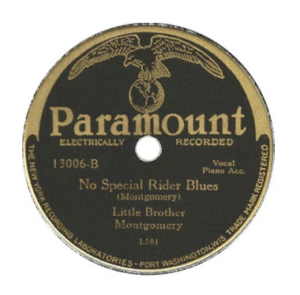
Concert of the week in Grateful Dead history: January 2, 1970 (Listen Now)
I wish I was a headlight on a northbound train.
By The Deadhead Cyclist
For The Week of
5
January 2025
Even the most cursory examination of the lyrics of Grateful Dead songs quickly uncovers one of the most fundamental aspects of the band’s identity: This is an American band, rooted in American culture, and built around easily recognizable locales and deeply American principles and history.
Original tunes like Truckin’ (“Chicago, New York, Detroit and it’s all the same street”), Friend of the Devil (“I lit out from Reno,” “I spent the night in Utah), Ramble On Rose (“Just like New York City, just like Jericho”), Loser (“I could arm a town the size of Abilene”), and Jack Straw (“Jack Straw from Wichita,” “Half a mile from Tucson”), and so many more, ring the dinner bell with a rich menu of Americana.
Even in choosing songs to cover, the “Band Beyond Description” leaned heavily in the same direction with tunes like, Sitting on Top of the World (“Mississippi river, so big and wide”), Dancing in the Street (“Philadelphia, PA, Baltimore and D.C. now”), El Paso (“Out in the west Texas town of El Paso, ” “Out to the badlands of New Mexico”), and Me & Bobby McGee, (“Busted flat in Baton Rouge,” “From the coal mines of Kentucky to the California sun”).
Then there’s Big River, with mentions of St. Paul, Davenport, St. Louis, Memphis, and Baton Rouge. And let’s not even get into Promised Land. Let’s simply agree that the Grateful Dead had the entire country covered, geographically speaking.
But there’s more to the band’s Americana persona than mere geography. Cumberland Blues describes the plight of the underpaid and overworked American miner; Wharf Rat is the touching tale of poverty and alcoholism “down by the docks of the City” (referring to San Francisco); Brown Eyed Women depicts the predicament of a farmer who resorts to bootlegging as a means of survival during the Great Depression; the ubiquitous references to American life in Uncle John’s Band refer to a society whose “walls are built of cannonballs” and which was founded under the motto, “don’t tread on me.”
It is important to underscore that most, if not all of these songs are delivered with a distinct undercurrent of protest, consistent with the anti-establishment “America: Change It or Lose It” slogan of the Sixties. Undoubtedly the best example of this is U.S. Blues. This deeply cynical exposé of the mainstream jingoistic version of American patriotism suggests a revolutionary, “neo-patriotic” vision of America that describes an enduring American movement still alive and well a half-century later.
With all of that in mind, here’s a contextual trivia question: How many references to my home state of Colorado (the site of arguably the greatest outdoor music venue in the country, Red Rocks Amphitheater) are there in the poetry of the Grateful Dead?
It is within the context of this obscure piece of Black music history that we learn that “Rider” in old blues songs means “lover,” and that the lamentable theme of loneliness and missing one’s lover – all too common in the Black American experience of being forcibly separated from loved ones – is evoked in the second half of our beloved China/Rider medley.
The answer: two (three if you count two in one song).
- Me and My Uncle (“South Colorado, West Texas bound,” “I’m as honest as a Denver man can be”)
- I Know You Rider (“I’d shine my light through the cool Colorado rain”)
What many Deadheads don’t know is that the first of these fits into the “cover” category, as the song, Me and My Uncle, was written by John Philips of the Mamas and Papas in 1963, and originally recorded by Judy Collins the following year. Despite being covered by many bands and musicians – Joni Mitchell, John Denver, Widespread Panic, Billy Strings, Goose – the Dead made the tune famous after debuting it on 11/29/66 at the Matrix in San Francisco. Indeed, Me and My Uncle would ultimately become the band’s single most frequently played song with 616 performances.
What may be equally surprising to many Deadheads is the fact that I Know You Rider was also not one of the band’s originals. A wonderfully raw, early version of this tune, in its customary place behind China Cat Sunflower, is found in the 1/2/70 show from the Fillmore East in New York City, which just happens to be the Deadhead Cyclist’s choice for This Week In Grateful Dead History.
Thematically if not musically, China-Rider is an odd pairing in that the China half is one of the most, if not the most original tune the Dead performed, while Rider is a traditional tune with a history that predates the Dead by 38 years. With respect to the Americana theme, however, I Know You Rider represents a singular element in the band’s repertoire.
By adding I Know You Rider to their song list, the Grateful Dead added an unmistakable piece of Black Americana to their already well-established American band persona. Commonly heard in the Black prison camps of the 1930s, the tune that Deadheads refer to affectionately as “IKYR” was known as “Prison Rider Blues,” which included this familiar verse:
I know you rider gon’ miss me when I’m gone ( x2)
You gon’ miss your little mama baby from rollin’ in your arms
Drilling down a little deeper into African American culture, we find the roots of “Prison Rider Blues” in a recording by a Black Mississippi-based, jazz and blues piano player, named Little Brother Montgomery, called “No Special Rider Blues.” It is only within the context of this obscure piece of Black musical history that we learn that “Rider” in old blues songs means “lover,” and that the lamentable theme of loneliness and missing one’s lover – all too common in the Black American experience of being forcibly separated from loved ones – is evoked in the second half of our beloved China/Rider medley.
A White, Mississippi-born musicologist, named John Avery Lomax (1867-1948), included a version of “Prison Rider Blues” in his 1934 songbook, American Ballads & Folk Songs, renamed and to some extent rewritten as Woman Blue. This version included this familiar verse:
De sun gwine shine in my back do’ some day
De win’ gwine rise, baby, an’ blow my blues away
It should be noted that similar versions of this more hopeful blues refrain can be found throughout Black musical history, including this one from Blind Lemon Jefferson’s 1927 Deceitful Brownskin Blues:
Well the sun gonna shine in my back door someday
I’ll have one more drink, gonna blow these blues away
Which brings us to the headline of this post, and the subject of This Week In Grateful Dead history. Various versions of I Know You Rider became widely covered in the Sixties, with versions performed and recorded by a recognizable list of artists, including Joan Baez, the Kingston Trio, the Byrds, and Janis Joplin. But only the Dead’s version included the “I wish I was a headlight” verse. This, also, shows up in the Blind Melon Jefferson catalogue, in a 1926 tune, Wartime Blues:
If I could shine my light like a headlight on some train
I would shine my light in Colorado Springs.
Of course, the version Deadheads are familiar with goes like this:
I wish I was a headlight on a northbound train
I’d shine my light through the cool Colorado rain.
Not only does this version continue the theme of loss and longing found in the original versions of Rider, but it adds a uniquely African American undercurrent to it in the way it conveys the desire for the relative freedom of the North, still alive and well among the Black population in the South. Indeed, in African American history, the “Underground Railroad” was a network of routes and safe houses that helped slaves escape to the Northern U.S. and Canada.
Whether intentionally or not, the Grateful Dead’s version of I Know You Rider – and particularly the metaphoric “northbound train” verse – represents the pain of separation, the sting of injustice, the longing for freedom, and the way each of us follows a route to our destiny, with various stops along the way.
One more example supporting the claim that the Grateful Dead was the most American of all American bands.
Concert of the week in Grateful Dead history: January 2, 1970 (Listen Now)
Want to find out about future concerts of the week?